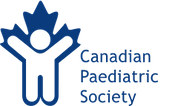A preventable public health crisis: Diagnosing and Managing Congenital Syphilis
OTTAWA – Congenital syphilis has been on the rise over the past two decades in Canada, leading to miscarriages and significant health problems in newborns. Although it is preventable, congenital syphilis persists due to inadequate maternal treatment, reinfection, and failure to treat sexual partners. The Canadian Paediatric Society (CPS) has published new guidance for clinicians to help prevent, identify, and manage the condition.
“The rates we are seeing tell us that this infection is not being controlled within communities,” said Dr. Sergio Fanella, a paediatric infectious diseases specialist and the lead author of the CPS statement.
Transmission from mother to child can occur in utero or during birth. Since maternal syphilis can be asymptomatic or show symptoms that can be mistaken for other conditions, the CPS recommends that all expecting mothers be tested at their first prenatal visit, with repeat testing at 28-32 weeks and at delivery when there is a high risk of infection.
“Congenital syphilis can cause pregnancy loss and severe, permanent effects on infants,” said Dr. Fanella, “but it is completely preventable. Testing early on in pregnancy allows us to treat the mother and baby and gives the best outcomes for both.”
Syphilis in pregnancy is treated with antibiotics.
CPS also recommends routine screenings of congenital syphilis for international adoptees, immigrants, and refugees.
—30—
About the Canadian Paediatric Society
The Canadian Paediatric Society is a national advocacy association that promotes the health needs of children and youth. Founded in 1922, the CPS represents more than 3,300 paediatricians, paediatric subspecialists and other child health professionals across Canada.
Last updated: Mar 28, 2024
